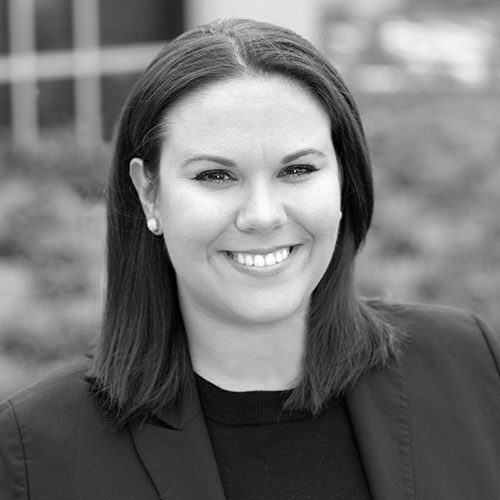The simplicity of some of the products that are produced by LyondellBasell, a Dutch company with executives in Houston, Texas, contrasts with the mind-numbing set of circumstances that could have sunk this multinational company.
Where most people would see a plastic garbage bag, industry insiders know that this simple sheet of plastic was subject to all the market volatility and regulations of the petrochemical industry, a leveraged buyout merger, a global financial crisis, and a revolution in natural gas extraction.
This environment is the one Jeffrey Kaplan entered when he joined LyondellBasell in 2009 as deputy general counsel. In addition, the company was in Chapter 11 bankruptcy, a situation brought on by several factors.
Kaplan’s responsibilities included oversight of the regulatory and compliance matters that confront all firms in the petrochemicals industry. Regardless of the financial condition of the company, of the overall economy, or the company’s looming merger that began in 2007, rules needed to be followed. “My initial job was to sort through compliance issues,” says Kaplan, who has since been promoted to executive vice president and chief legal officer.
The merger between US-based Lyondell and Europe-based Basell redefined roles in the legal department. The combined company, operating in eighteen countries, hadn’t grown several functions and in fact had been shrunk due to the faltering economy. Only a single person worked on compliance, which was inadequate. LyondellBasell’s market is a heavily regulated one, especially in environmental issues. Historical contaminants left behind long before the United States or state environmental protection agencies existed are subject to regulation, as well as a maze of emissions reporting and adherence to US and worldwide standards for handling, shipping, and receiving products containing hazardous chemicals.
“We have to understand where our products are going and how they are used.”
Kaplan also worked on employee environment regulations, such as those set by the Occupational Safety and Health Administration (OSHA), on matters under the Foreign Corrupt Practices Act, and with the supervision of the Office of Foreign Assets Control.
When Kaplan arrived at the company it was under two ongoing investigations by the US Department of Justice. Those were subsequently resolved but added to an already heavy workload that didn’t make his entry into the situation any easier.
Interesting Timing
The merger of Lyondell with Basell in December 2007 was a case of exceptionally bad, if unforeseeable, timing. Consolidated debt of $24 billion was unsustainable when the petrochemicals market collapsed in the global recession that accelerated rapidly in 2008, leading to the company’s January 2009 Chapter 11 filing.
The company restructured internally, fended off takeover attempts, and achieved a court-approved reorganization within sixteen months. As Kaplan explains, being out of bankruptcy allowed LyondellBasell’s legal team to give more attention to compliance. “Most companies in compliance difficulties spend more on defense and settlements or fines,” he says. “Front-end compliance certainly pays off.”
Compounding all of this was the exodus of nearly the entire C-suite of the company during the bankruptcy. Several key staff in the legal department departed, as well. Still, that enabled Kaplan to start with a clean slate, to help build a legal department that fit the new LyondellBasell.
Among his many tasks was to create a compliance culture within the company and with its foreign operations. This included understanding third-party agents and distributors. “We have to understand where our products are going and how they are used,” says Kaplan. Trade compliance extends to ensuring LyondellBasell-produced goods aren’t used by sanctioned countries or for nefarious purposes. This meant communicating clearly internally and with sales agents, joint venture partners, and customers about what was and wasn’t allowed.
Kaplan says this communication required legal to meet with those people and departments. “I helped hire and on-board a new chief compliance officer to go to all locations,” he says. “That happens in person, by phone, and by video.”
Today, LyondellBasell’s culture has a greater sense of urgency relative to compliance, he says, which is a message that comes from the company’s new leadership. Internal policies emphasize compliance and uniformity, which Kaplan says is critical in larger organizations, particularly those that are a merger of two or more companies.
Kaplan was building this compliance function even while dealing with the strictures of bankruptcy. “We had to be as conservative as possible with our spending,” he explains. “Already everyone was doing extra work because of the bankruptcy, and we were short of staff due to attrition.”
LyondellBasell By the Numbers
13,300
employees (as of 2013)
9
regions with LyondellBasell facilities in North America (Illinois, Iowa, Louisiana, Michigan, New Jersey, Ohio, Texas, Tennessee, Mexico)
2
countries with LyondellBasell facilities in South America (Brazil, Argentina)
6
countries with LyondellBasell facilities in Europe (France, Germany, Netherlands, Italy, Spain, United Kingdom)
The economic landscape for companies such as LyondellBasell has changed considerably in the half decade since the company’s bankruptcy. In the lead-up to the 2008 financial crisis, oil and natural gas—primary sectors to the industry—were priced much higher than they are now.
Kaplan note that two things have changed in the years since: natural gas and oil now diverge price-wise, largely due to the shale oil boom in the United States, with natural gas being the cheapest.
Oil is also much lower in price due to a global oversupply. “The United States is now one of the lowest-cost suppliers of natural gas,” he says. “These prices are key to our business.”
US-sourced shale gas, which is obtained through the method widely known as fracking, has also led to a boom in several industries that include petrochemicals, glass, steel, and toys. Natural gas is 50–70 percent cheaper in America than in Europe and Japan, according to research by the Boston Consulting Group.
Customer markets, too, are much stronger today than during the recession. As much of the plastics world is associated with the general economy, higher spending on durable and nondurable goods—cars and houses, and anything inside them—means greater demand for chemicals that go into them.
Kaplan says US environmental and other regulations have not changed structurally over these same years as much as they have evolved. Globally, many more countries are coming in line with the United States, which most insiders consider an all-around positive. It removes one layer of complexity for this company, now thriving, that has had many issues to deal with over the past decade.


